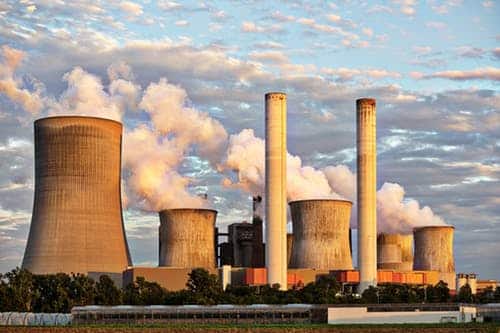Arizona Regulators Reject 100 Percent Clean Energy Rules Despite Stronger Utility Pledges

The Arizona Corporation Commission on Jan. 26 voted 3-2 to decline rules that would have required the state’s investor-owned electric utilities to supply 100 percent carbon-free power to their customers by 2070. Utilities already have voluntarily committed to more ambitious decarbonization plans. Arizona Public Service Company (APS) has committed to source all of its electricity from zero-carbon resources by 2050 and Tucson Electric Power plans to provide over 70 percent of its power from renewables by 2035.
The vote marks the culmination of a three-year effort including workshops, input from regulated utilities, clean energy advocates, ratepayers, and other stakeholders. A breakthrough seemed to have been achieved in May 2021 when the commission voted to advance an amended rules package to transition to carbon-free electricity by 2070, albeit less ambitious than a previously proposed 2050 timeline. The rules included interim standards beginning with a 50 percent reduction in emissions by 2032, a 65 percent reduction by 2040, an 80 percent reduction by 2050, and a 95% reduction by 2060, with both renewables and nuclear power as qualifying sources.
In voting against the rule, Commissioner Justin Olson expressed concerns regarding the cost of the proposed mandate on consumers. According to an independent analysis released by the commission in August, if utilities achieve 100 percent zero-emission energy in 2050, the typical monthly residential bill for APS customers in 2050 is expected to be $59.12 to $62.66 more compared to the amount without the goal. The revenue requirement of APS, the state’s biggest investor-owned utility, would increase by nearly $4 billion and that of TEP by $1.13 billion, according to the analysis. Commissioner Jim O’Connor pointed out that the state’s electric utilities have already adopted voluntary goals. Chairwoman Lea Márquez Peterson said she supports a 2050 timeline rather than 2070 and also believes that the rule should be a goal and not a mandate.
APS and TEP had supported the previous proposals setting the 2050 decarbonization deadline, noting it was consistent with their own schedules for reaching 100 percent emissions-free power to address customer and investor concerns about climate change.
The state’s current 15-year-old clean energy standards have long been irrelevant because they require the investor-owned electric utilities to get only 15 percent of their electricity from wind, solar and other emission-free sources by 2025—a target long ago achieved by utilities. Different business, environmentalists and clean energy groups said that the commission’s decision to reject stronger clean energy standards would hurt the state by discouraging companies from setting up new job-creating businesses in the state. The Advanced Energy Economy expressed disappointment, noting that “predictable clean energy standards are crucial for helping Arizona attract new businesses and build a booming job market.”
EnerKnol Pulses like this one are powered by the EnerKnol Platform—the first comprehensive database for real-time energy policy tracking. Sign up for a free trial below for access to key regulatory data and deep industry insights across the energy spectrum.
ACCESS FREE TRIAL